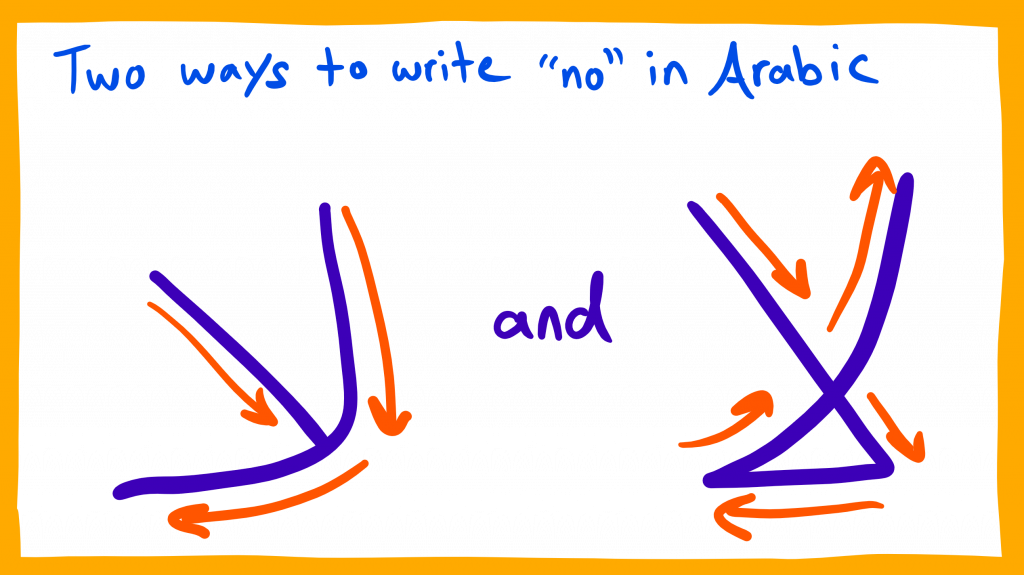Is There Only One Way to Use “No/Laa” in Arabic? Posted by yasmine on May 1, 2019 in Arabic Language, Grammar
“Laa” لا is probably one of the first words you learned in Arabic. It’s easy to say (no difficult sounds) and doesn’t change much in Arabic dialects. In this post, we’ll look at the few different grammatical functions of لا.
First, there are two different ways of writing “no” in Arabic: Both are equally correct. ?
Grammatical functions of لا:
- Used to answer a yes or no question. For example:
Did you eat breakfast today?
No, I did not eat breakfast.
هل أكلتَ الفُطور اليَوم؟
.لا، لَم آكلُ الفُطور
- Used to negate the present tense. For example:
You don’t eat meat, then you are a vegetarian.
.لا تأكلَ اللَحِم، إذاً أنتَ نَباتي
- Used to give negative commands. For example: Don’t drink this water.
.لا تشرب هذا الماء
You will not travel.
.سوف لا تسافر
- Used with nouns in compound forms. For example:
nothing
لا شيء
no doubt
لا شَكْ
- Common phrases and sayings with لا:
There is no God but God.
لا إله إلا الله
Literal translation: Don’t thank me for my duty.
Meaning: (you’re welcome, don’t mention it, no need to thank me, it was my pleasure)
لا شكرعلى واجب
When it comes to لا in Levantine dialect, we add a ء to لا making it لأ. So, you’re just adding a glottal stop. In dialect, you will also hear speakers use the regular standard لا without a glottal stop. There is no rule of thumb I can give to know when either is used, it’s kind of random. So, listen for both! ?
Here is an example of a Levantine sentence with لأ:
Did you go to the (small super market)?
No, I didn’t go yet.
رُحْت على الدُكان؟
.لأ، ما رُحِت لسا
Here is a video from yesterday’s talk show about a prize-winning competition in Jordan throughout this Ramadan. Try to listen and catch the speakers saying لا/لأ ?.
جديد مسابقة رمضان ٢٠١٩ – استضافة كرفانية – كرفان
For those of you who celebrate Ramadan,
!كُل عام وأنتُم بِخَير ?

Build vocabulary, practice pronunciation, and more with Transparent Language Online. Available anytime, anywhere, on any device.





Comments:
Robert Barker:
Your example above “Meaning: (your welcome, don’t mention it, no need to thank me, it was my pleasure)” contains a grammatical error. It should be “you’re welcome”.
yasmine:
@Robert Barker Thank you Robert for catching that. I fixed it.